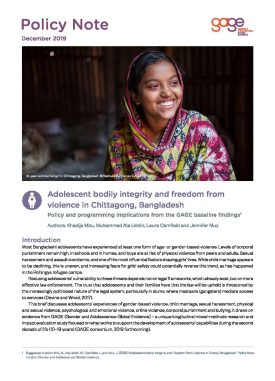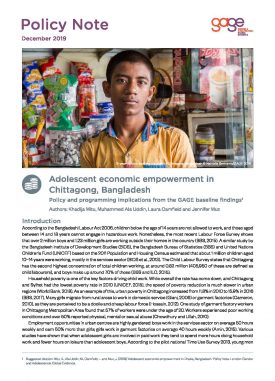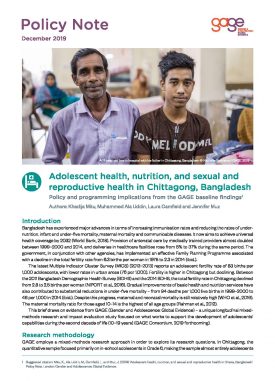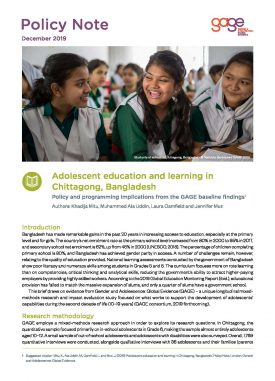While there is little research available on psychosocial well-being in Bangladesh, and adolescent psychosocial well-being in particular (Stavropoulou et al., 2017), some studies have shown increases in stress around puberty for girls (Amin, 2015) and in urban areas (Dey et al., 2014). A study of the psychosocial well-being of primary school children in Chittagong town found that 20.3% had pro-social problems, 19.3% had conduct problems and about 1.5% had symptoms of emotional distress (Bairagi et al., 2013). Adolescents of Bengali ethnicity and high-achieving adolescents expressed higher self-acceptance and lower anxiety compared with their peers (Islam et al., 2014).
Assessments of mental health are rarely integrated into surveys of adolescents (Amin, 2015); however, where this has happened, incidence of depression has been found to be higher for girls and in urban areas, owing to factors such as maternal death, experience of harassment and forced marriage. Dey (2018) found that male adolescents experienced loneliness more than female adolescents and this loneliness – thought to be due to a lack of emotional support during puberty – was linked to high rates of aggression. The main ways adolescent girls in Bangladesh cope with poor mental health are being on their own (44%), listening to music (27%) and not talking to others (14%) (Amin, 2015).
This brief draws on evidence from GAGE (Gender and Adolescence: Global Evidence) – a unique longitudinal mixed methods research and impact evaluation study focused on what works to support the development of adolescents’ capabilities during the second decade of life (10–19 years).
Suggested citation
Mitu, K., Ala Uddin, M., Camfield, L. and Muz, J. (2019) ‘Adolescent psychosocial well-being and voice and agency in Chittagong, Bangladesh.’ Policy Note. London: Gender and Adolescence: Global Evidence. (https://www.gage.odi.org/publication/adolescent-psychosocial-well-being-and-voice-and-agency-in-chittagong-bangladesh/)



